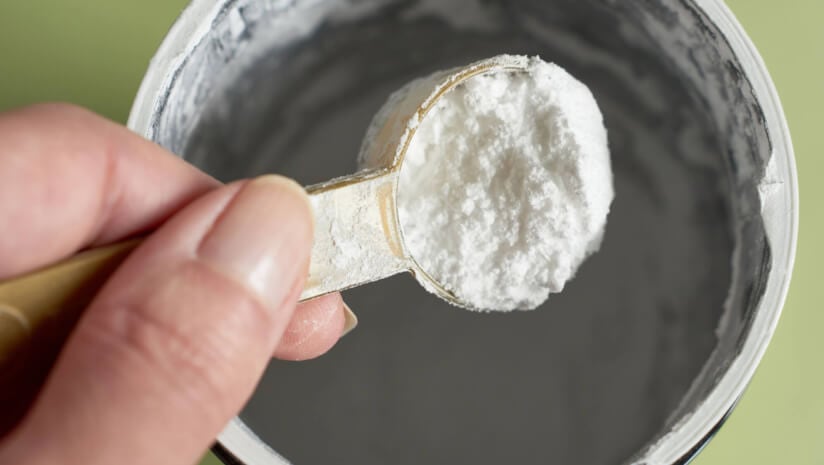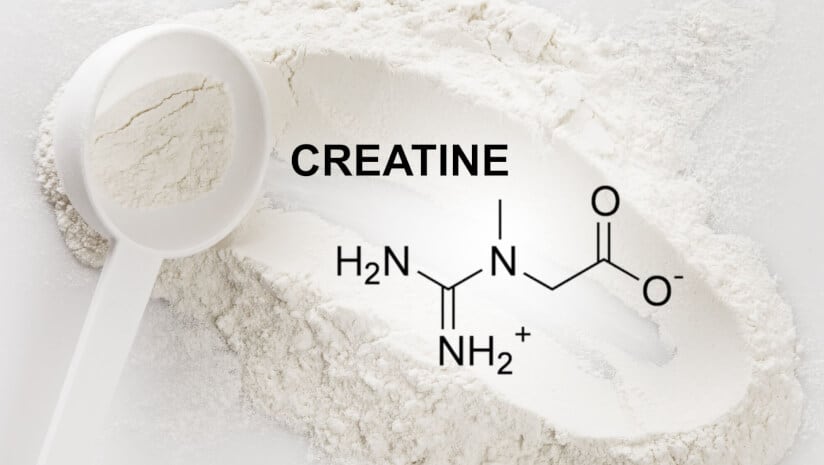Writing in the Journal of the American Nutrition Association, researchers from the University of Novi Sad in Serbia evaluated the effects of low-dose creatine formulations with enhanced solubility on menopause-related neurocognitive and metabolic changes.
“To the best of our knowledge, this trial is the first to investigate the effects of low-dose creatine formulations on clinical outcomes and relevant biomarkers in perimenopausal and menopausal women,” they wrote.
“Our findings indicate that an eight-week regimen of creatine hydrochloride (with or without creatine ethyl ester) was superior to placebo in enhancing cognition, increasing frontal brain creatine levels and favorably modulating serum lipid profiles in this population.”
This research was partially funded by Serbia’s Provincial Secretariat for Higher Education and Scientific Research and Nashville, TN-based Vireo Systems, which provided the CON-CRĒT-branded creatine hydrochloride and the ethyl esters used in the study.
Non-monohydrate creatine and (peri)menopause
While much of the creatine research to date has been conducted with creatine monohydrate, this study used creatine hydrocholoride (HCl) and ethyl ester (CEE) forms, hypothesizing that supplementation with HCl, particularly in combination with CEE, would result in more significant improvements in cognitive performance, relief of perimenopausal symptoms and greater increases in brain creatine concentrations compared to placebo.
Vireo Systems markets creatine HCl as having superior bioavailability that allows for the administration of lower doses for benefits without side effects like weight gain and gastrointestinal distress that may cause women to shy away from creatine supplementation.
“Women in general, and menopausal women in particular, are one of the most under-researched sectors when it comes to creatine, and that is very unfortunate since creatine is arguably the most important supplement people can take, and women often need more supplementation since they store less creatine in their bodies than men,” Mark Faulkner, president and found of Vireo Systems, told NutraIngredients.
“Further, many of the problematic symptoms associated with menopause and perimenopause are indications that should be helped by optimized creatine levels and yet, many women avoid creatine due to their concerns about bloating, water retention, puffiness and G.I. distress that has long been associated with the use of standard creatine monohydrate.”
The Novi Sad researchers highlighted a recent review showing that creatine supplementation, most commonly consumed as creatine monohydrate at doses of 3-to-5 grams per day, offers significant benefits for improving exercise performance, muscle and bone health, and recovery in both premenopausal and menopausal women. These benefits, however, appear to be primarily contingent upon concurrent physical activity—where even at high doses of 20 grams a day, muscle and bone health in postmenopausal women have been reported as modest when consumed without exercise interventions.
Surprising notable effects
The current study randomly assigned 36 perimenopausal and menopausal women to one of four groups: low-dose creatine hydrochloride (750 mg/day), medium-dose creatine hydrochloride (1,500 mg/day), creatine hydrochloride plus creatine ethyl ester (800 mg/day) or placebo. It assessed various measures of cognitive function, clinical outcomes (five dimensions of fatigue, exercise tolerance, participant-reported outcomes), brain creatine levels, clinical chemistry panels and the prevalence and severity of side effects.
“Supplementation with medium-dose creatine hydrochloride was found to be superior to placebo in enhancing reaction time, increasing frontal brain creatine levels and favorably modulating serum lipid profiles,” the researchers reported. “Moreover, medium-dose creatine hydrochloride demonstrated a potential advantage over other treatments in reducing the severity of mood swings.”
Moderate positive effects were seen even without the co-administration of resistance training, suggesting that exercise is not required for cognitive, immune and overall health benefits. All interventions were described as well tolerated, with no severe adverse effects.
“I must say, this study truly surprised me with the notable effects observed at such a low dosage of creatine,” Sergej Ostojic, PhD, head of the Applied Bioenergetics Lab at the University of Novi Sad and co-author on the study, told NI. Dr. Ostojic, who has conducted much of his lab’s extensive creatine research with creatine monohydrate, noting several possible explanations for these findings.
“One intriguing factor might be changes to the blood-brain barrier during perimenopause, potentially allowing more creatine to enter the brain,” he said. “Another possibility is related to the specific transport characteristics of creatine HCL (and CEE), which may enable these forms to cross via alternative pathways, thereby promoting favorable cognitive effects.”
Dr. Ostojic also highlighted the significant absence of weight gain in this population as particularly promising for women at this stage of life—suggesting they can experience the benefits of creatine “without adding an extra pound or two, which is often a concern.”
More research needed on forms, dose and profiles
Faulkner said the study prompts the need for a better understanding of optimized dosing, mechanisms of action and combination therapies for improved lipid profile treatment, noting that heart disease is the number one killer of women in their menopause years.
“We are hopeful that these findings about the benefits of low-dose creatine HCl therapies will encourage more women to embrace the supplement as an important part of optimizing their health and quality of life,” he added, noting that Vireo Systems will continue to support Dr. Ostojic’s work and is pursuing further studies to build upon these findings.
For his part, Dr. Ostojic said that a critical next step would be to conduct a direct comparison with creatine monohydrate at equimolar amounts to test the theory of superiority versus inferiority.
“I believe this line of research and application should definitely be pursued further, perhaps with creatine monohydrate as well, and over a longer duration of intake (e.g., 12 months or more),” he added.
“It’s becoming increasingly clear that we need to consider dose-specific effects, as higher dosages or creatine may not necessarily be universally better across all health domains. It would also be valuable to examine perimenopausal and menopausal women separately, as they have distinct biological profiles and potentially different needs and responses to supplementation.”
Source: Journal of the American Nutrition Association. doi: 10.1080/27697061.2025.2551184. “The Effects of 8-Week Creatine Hydrochloride and Creatine Ethyl Ester Supplementation on Cognition, Clinical Outcomes, and Brain Creatine Levels in Perimenopausal and Menopausal Women (CONCRET-MENOPA): A Randomized Controlled Trial”. Authors: D. Korovljev, et al.




